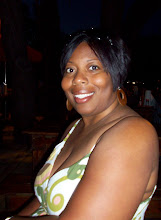As an education practitioner, I believe it is necessary that
educators understand and remember that being a part of the early childhood
field requires one to be a lifelong learner.
This means reading the latest trends, new research findings, and updates
regarding the early childhood field as it relates to the political agendas of
politicians. Then as a growing scholar
practitioner, I better understand the necessity to research the study and
findings of the various topics that impact the field to determine where changes
in be made for positive social change.
As I reflect upon the material via books, online articles,
and videos assigned for this course, I must say I have enjoyed reading the
three assigned books. Those subject
matter in the books was a reminder that as an education practitioner, I must be
supportive of all families and respect cultural differences. A quote I really
love from the book, Anti-Bias Education for Young Children and Ourselves is
 “We find these joys to be self-evident: That all children
are created whole, endowed with innate intelligence, with dignity and wonder,
worthy of respect. The embodiment of
life, liberty, and happiness, children are original blessings, here to learn
their own song. Every girl and boy is entitled
to love to dream, and belong to a loving “village.” And to pursue a life of
purpose. – Raffi, “A Covenant for Honouring Children” (Derman-Sparks &
Edwards, 2010, p.1)
“We find these joys to be self-evident: That all children
are created whole, endowed with innate intelligence, with dignity and wonder,
worthy of respect. The embodiment of
life, liberty, and happiness, children are original blessings, here to learn
their own song. Every girl and boy is entitled
to love to dream, and belong to a loving “village.” And to pursue a life of
purpose. – Raffi, “A Covenant for Honouring Children” (Derman-Sparks &
Edwards, 2010, p.1)
I thought this quote embodied what we would want for every
child. I believe it also gives to what myself and other education practitioners
do to provide children the opportunity in partnership with their families to “learn
their own song.” I also thoroughly
enjoyed learning about the Four Core Goals of Anti –Bias Education and the “Goals
for the Anti-Bias Teacher.” This was my
first experience with this subject and it has really enhanced my
perspective. It also has caused me to
reflect on the thought process I use when working with diverse groups of
learners and their families. Even though
I am not in the classroom, a part of my role as an education manager with my
current work environment is ensure the teachers understand best practices for
the classroom. This includes
understanding how to work with diverse families and family structures. The information present in the course book “Understanding Families: Supportive
Approaches to Diversity, Disability, and Risk” help to broad my view even
more. I will be sharing information from
this book with both teachers and student-teachers.
Finally as I reflective upon my major course project for
class, I am truly change. Researching
father involvement gave me so many views of aspects that must be consider when
thinking of why a father may or may not be involved. It is not just a dad choosing not to be
involved. There can be elements such as
cultural beliefs, beliefs regarding interacting with girls versus boys,
educational backgrounds, marital status and socioeconomic status. What have learn is that research study
findings show that fathers being positively involved with their children truly
make a differences in their social emotional, language, and cognitive
development. Dads make the difference.
Whereas I was nervous about completing a research study, I
am more comfortable researching and reading various scholarly research. I believe I will be a better adjunct
instructor and education manager for those educators I support and
nurture. I feel am also being positively
equipped to make great impacts on the field of early childhood education. I must also say I have been greatly impacted
by the discussions with classmates and fellow practitioners. This has been a great class journey!
References:
Derman-Sparks, L., & Edwards, J. O. (2010).
Anti-bias education for
young children and ourselves. Washington, DC: National Association
for the Education of Young Children.
Hanson, M. J., & Lynch, E. W. (2013).
Understanding families: Approaches
to diversity, disability, and risk. Baltimore, MD: Paul H. Brookes
Publishing Co.





